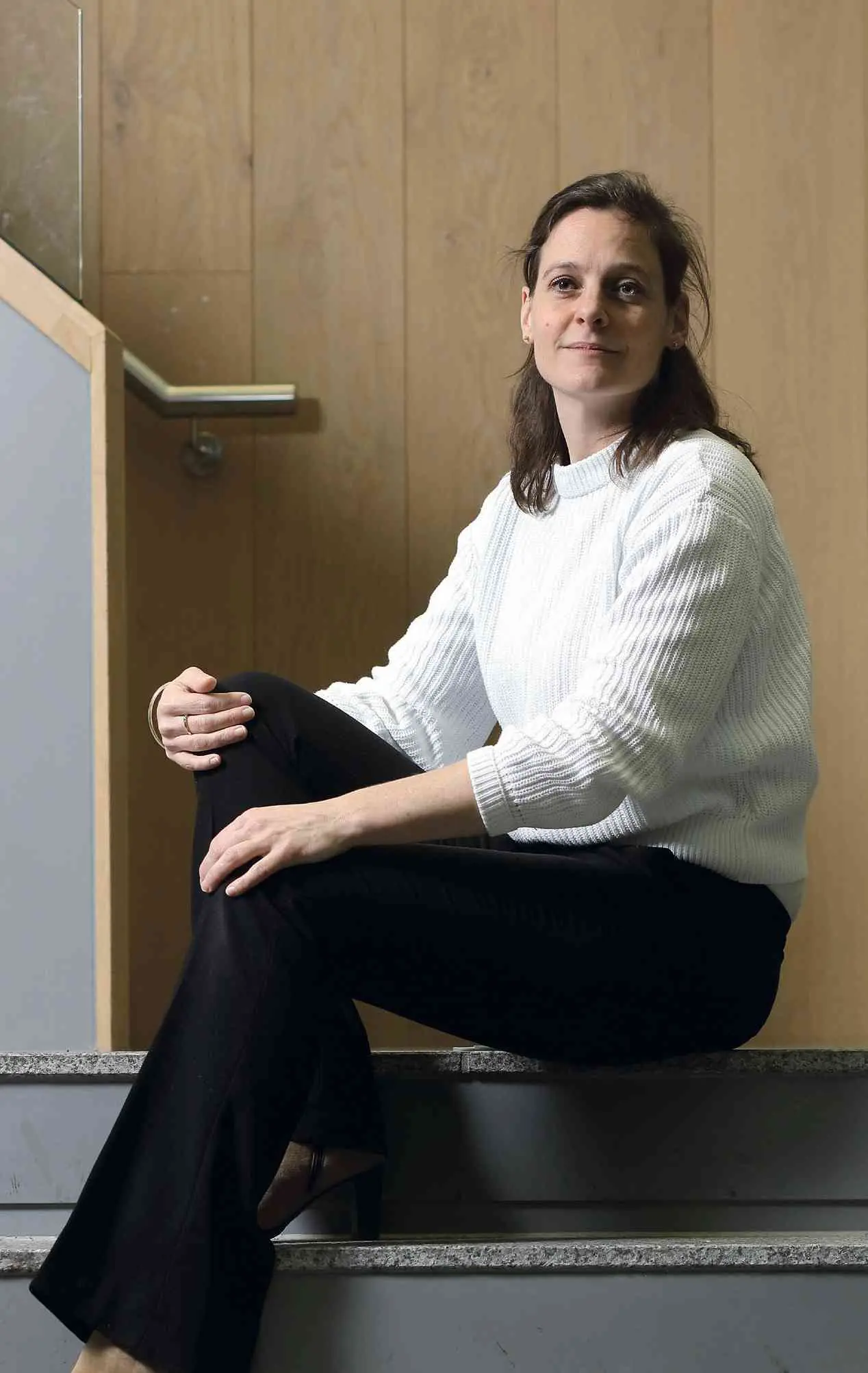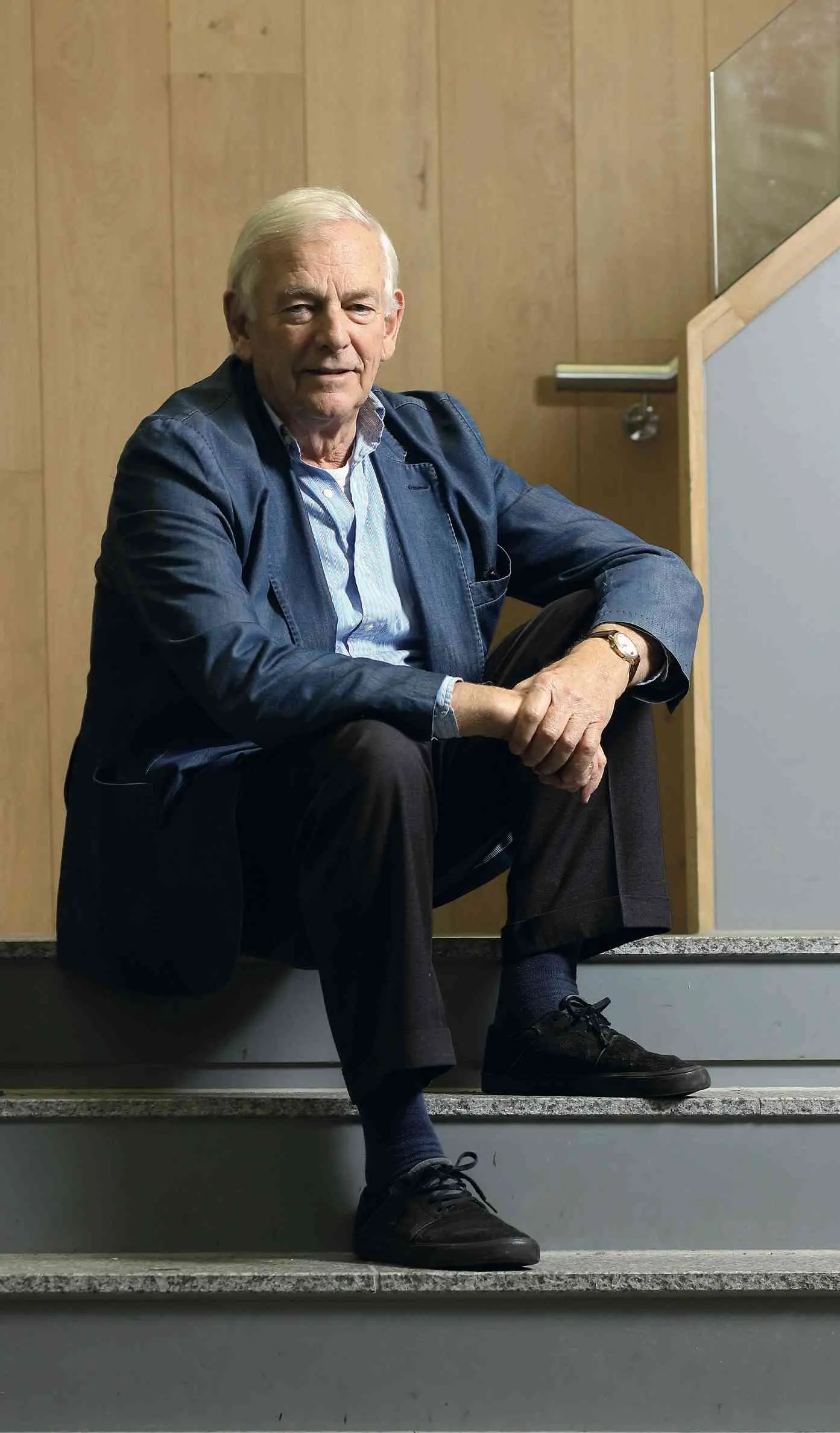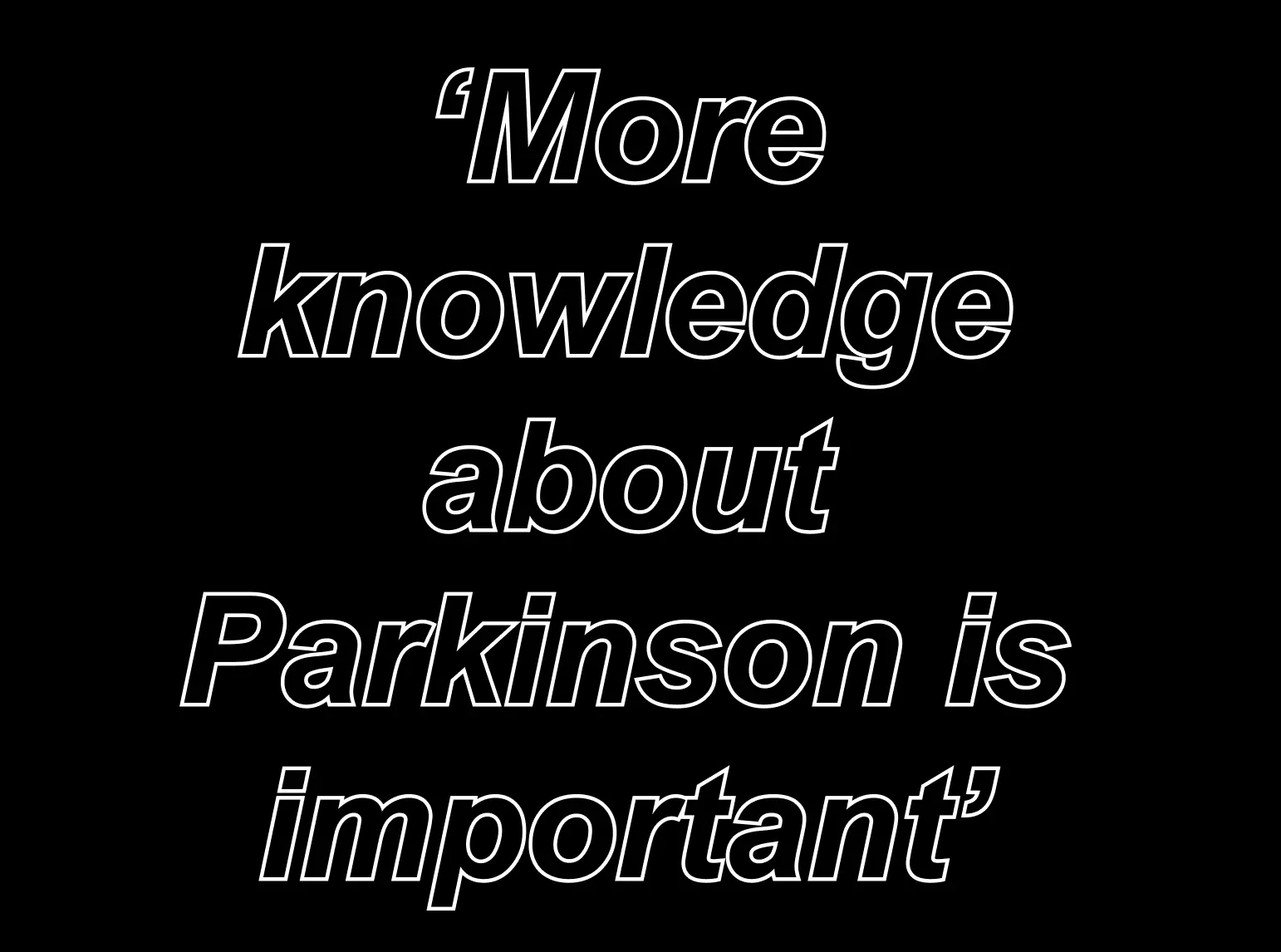De match

Dimphna Meijer
Assistant professor and researcher

Doeko Bosscher
Alumnus en retired paper manufacturer

Text: Dayinta Perrier
© Sam Rentmeester
Since his wife was diagnosed with Parkinson’s, alumnus Doeko Bosscher has been following the latest scientific developments around this disease with great interest. He has decided to financially contribute to the research of Dimphna Meijer, associate professor at Applied Sciences. “I see her research as a building block to expand knowledge about the disease and ultimately understand Parkinson’s.”
Contact: it is crucial for people. But it also appears to play a key role in the brain. Neurons meet at a meeting place called the synapse, to exchange information. This is how they direct the body’s movements. If the contact between the two neurons is off, information is not transmitted properly. This may result in struggling to perform small movements, or a tremor. These are symptoms of Parkinson’s disease. So, what constitutes ‘good’ contact? Doeko Bosscher, a now retired alumnus of TU Delft, has experienced Parkinson’s disease up close. His wife was diagnosed with this disease more than twenty years ago. She passed away last year. “More knowledge about Parkinson’s is important to be better able to treat it,” says Bosscher. That is why he has decided to support the research of Dimphna Meijer, associate professor in the Faculty of Applied Sciences (AS), through the University Fund. She is working on an artificial synapse. “There is so much going on inside the body of a person with this disease. So much, in fact, that it stops us from understanding Parkinson’s,” says the researcher. “Separately replicating a single key element allows us to incrementally expand knowledge about the disease.” It is precisely the systematic unravelling of the disease that attracts Bosscher to this research. “We currently do not have a cure for Parkinson’s, only medication to possibly reduce symptoms,” Bosscher said. “ Meijer’s research is truly focused on understanding the disease. Only when we have that basic knowledge will better treatment methods be possible.” Bosscher explains another unusual aspect to the research. “Ms. Meijer is creating an artificial synapse, which is something I hadn’t heard of before. With an artificial model of the brain, you can explore factors that we could never test on humans or animals. Such as the effects of pesticides on the disease: with Meijer’s mini brain you can examine that,” Bosscher said.
‘This is the first time in ages for me that I have had contact with someone who has been affected by Parkinson’s’
‘My financial contribution is a treasured way to contribute to research that affects me on a personal level’
Personal story
After Bosscher expressed an interest in Meijer’s research, they met in her lab. Bosscher is an alumnus of the Faculty of Mechanical, Maritime and Materials Engineering and worked in the paper industry for a long time. A bio-nanoscience laboratory was all new to him. “The lab is very different than I expected,” Bosscher says. “And it’s impressive that researchers can gain so much knowledge in a small lab with only a few devices.” During the visit, Bosscher and Meijer talked about more than just the research. Bosscher’s personal story also came up. “This is the first time in ages for me that I have had contact with someone who has been affected by Parkinson’s,” Meijer said. “What he told me about his wife left quite an impression and also confirmed the relevance of this research.” What’s more, Meijer was also able to spar with Bosscher about leading a research group. “In many ways, setting up and keeping a group running is similar to managing a business,” Meijer said. “One question that I think about a lot, for example, is how to find the right people. Hearing the opinion of someone else who is at the end of their career is really valuable.” No new meeting has been scheduled between Bosscher and Meijer for the time being. “To me, it is primarily about financial support,” Bosscher said. “A researcher like Ms. Meijer, who also leads a team, has to look after the cash flow as well as the research. In my opinion, this distracts her from the science. My financial contribution is a treasured way to contribute to research that affects me on a personal level. If Ms. Meijer wants any further advice on leading her team, I am certainly open to contact.”
Donations like the one made by Doeko Bosscher enable us to speed up our research into dementia. Delft University Fund also supports other pioneering projects, the focus of which is to have a positive impact on society. You too can donate to these projects Tech for Impact 2023 projects.
